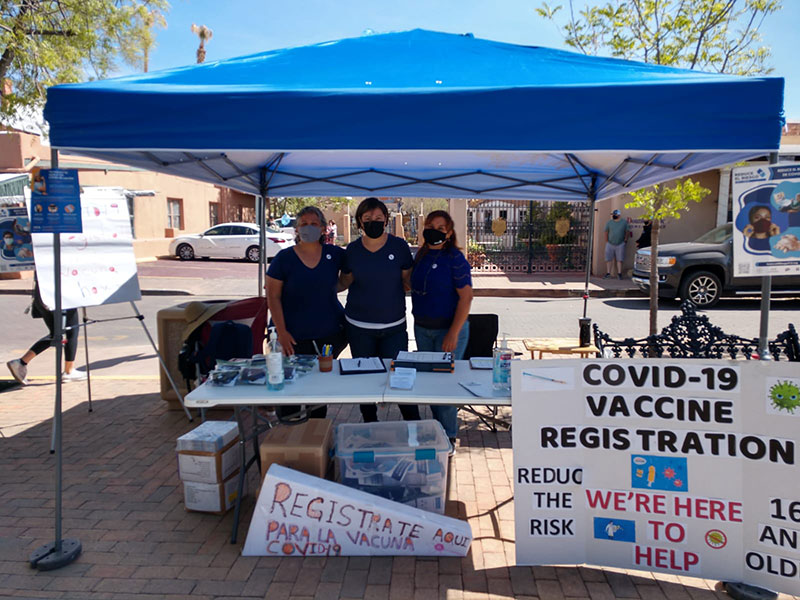
UTEP Helps Underserved Populations Navigate COVID-19 Testing and Vaccination Services
Last Updated on May 04, 2021 at 3:00 PM
Originally published May 04, 2021
By Christina Rodriguez
UTEP Communications
The University of Texas at El Paso Border Biomedical Research Center (BBRC) continues efforts to promote important COVID-19-related information – including how to navigate testing and vaccination services – to underserved communities in rural west El Paso County and southern Doña Ana County, through a grant awarded by the Paso del Norte Health Foundation to Bibiana Mancera, Ph.D., the BBRC’s director for community engagement.

In fall 2020, with funding from the Coronavirus Aid, Relief, and Economic Security (CARES) Act, El Paso County and the Paso del Norte Community Foundation launched the “Reduce the Risk. For You. For Me.” initiative, which brought UTEP’s BBRC and Texas A&M University’s Colonias Program together to help reduce the risk of spreading COVID-19 in the region.
Through UTEP and Texas A&M, trained community health workers, called promotoras de salud, conducted socially distanced in-person information sessions in hard-hit rural neighborhoods throughout El Paso County. In the span of two months, UTEP BBRC promotoras were able to reach more than 43,000 people and 430 local businesses and disseminate useful COVID-19 information such as the importance of properly wearing a face covering, social distancing, and navigation to testing, flu vaccines, and resources to assist with housing costs, food, funeral expenses, utilities and mental health services.
The current Paso del Norte Health Foundation grant will expand the promotora model and continue efforts in the region to help mitigate COVID-19 and get community members in rural west El Paso County and southern Doña Ana County registered for the vaccine.
“The promotoras are so important because of their effectiveness as members of the community. They know how to address and talk to their neighbors or people who might have the same life experiences,” Mancera said. “Promotoras are really good at connecting with people, so much so that the Paso del Norte Health Foundation, after CARES Act funding ended on Dec. 30, 2020, decided that it was important to continue with outreach efforts utilizing them.”
This new phase of the project will focus on not only registering community members for the COVID-19 vaccine but guiding them through the process. Mancera said there are still many who do not know how to register for the vaccine and are unclear about the types of vaccines available, number of doses and time between doses. The promotoras continue to field calls to register community members — more than 6,000 throughout February and March — as well as disseminate information on reducing the spread of COVID-19.
“Just because you have a vaccine doesn't mean you can't get the virus, it just means that you may not get impacted as severely,” Mancera said. “There's still the messaging that is very much needed right now to continue using face masks, keep socially distant, make sure to wash your hands and, of course, access to available resources.”
Michael Kelly, Ph.D., vice president of programs at the Paso del Norte Health Foundation, said the organization has a history of promoting healthy living to prevent choric disease. COVID-19, an infectious disease, presented new challenges, especially for those with existing chronic conditions, such as diabetes.
“It was important for us to respond in a space we could be most helpful – that of community health education and supporting partner organizations,” Kelly said. “The health foundation’s work with the BBRC at UTEP is a shining example of how a partnership can leverage strengths, assisting hard to reach communities. UTEP brings a complement of scientific expertise with a passion and talent for community impact.”
